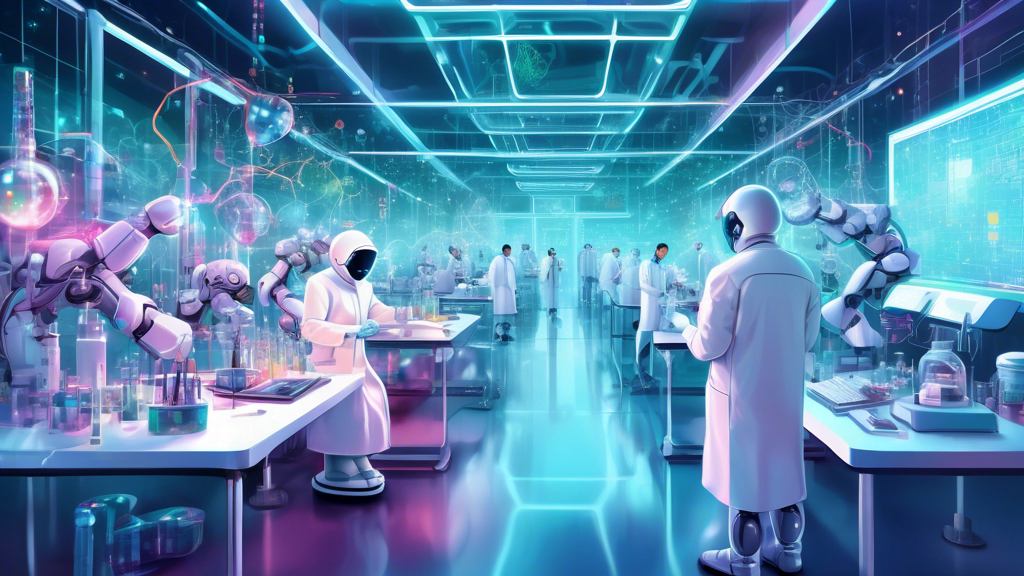My Unexpected Journey Into the World of AI-Enhanced Drug Discovery
Have you ever wondered just how deeply artificial intelligence (AI) is woven into the fabric of our modern lives? I certainly hadn’t—not until I stumbled upon its transformative role in something as critical as medicine, more specifically, in drug discovery. There I was, half-watching a documentary while scrolling through my phone late one night, when a segment caught my attention. It showcased how AI is revolutionizing the way new medications are developed. It was nothing short of an ‘aha!’ moment for me—enough to make me put my phone down and actually pay attention.
AI and Medicine: A Match Made in Science Heaven?
So, you might be pondering, how exactly does AI make a splash in the pharmaceutical seas? It’s a good question, and frankly, one that leads to some pretty fascinating answers. The intersection of AI and drug discovery is like a science fiction narrative come to life. Imagine computers that can predict how a molecule will behave in the body, or suggest new candidates that could become lifesaving drugs—fascinating, right?
Faster, Smarter, and More Efficient Drug Discovery
Traditionally, the journey to discover a new drug could take a decade or more, and involves a lot of trial and error, making it an expensive affair. Here’s where AI steps into the limelight. By using sophisticated algorithms, AI can analyze vast amounts of scientific data at speeds no human can match. This means that AI can identify potential drug candidates much faster than traditional methods. But that’s not all; it can also predict how these drugs might interact with the human body, which helps in speeding up the early stages of drug development.
Real-Life Applications: AI in Action
Take the example of a recent breakthrough in treating a disease that had been a tough nut to crack for scientists. AI algorithms analyzed existing medicines that could be repurposed to treat the disease, identifying promising candidates almost instantaneously. This process that would typically take years was cut down to mere months, thanks to AI’s ability to crunch data and recognize patterns faster than any human team could.
But, Is It All Smooth Sailing?
Not quite. Implementing AI in drug discovery does come with its set of challenges. Data quality and availability, the need for continuous learning and adaptation of models, and integration of AI into existing workflows are just the tip of the iceberg. The human element—doctors and scientists—still plays a crucial role in making nuanced decisions that AI might not yet fully grasp.
The Funny Side of AI Errors
And, just when you think AI might be the solemn, all-work-no-play type, it throws a curveball. Like the time an AI system was tasked with analyzing chemical structures and ended up suggesting chocolate as a potential medicine for coughs. Yes, you read that right—chocolate! While it gave us a good laugh, it also humbly reminded us that AI is only as good as the data and programming it receives.
Wrapping Up: What Lies Ahead?
Isn’t it mind-boggling to consider how a force as intangible as AI is spearheading tangible advances in medicine? Looking ahead, the integration of AI in drug discovery not only promises to speed up the development of new drugs but also holds the potential to make them more effective and tailored to individual needs. It’s a thrilling era for medicine, fueled by a technology that’s learning right alongside us.
So, as we continue our dance with AI in this complex world of medicine, it remains clear that this journey is just getting started. The possibilities? Endless. The implications? Life-changing. And honestly, I can’t wait to see what the future holds.
